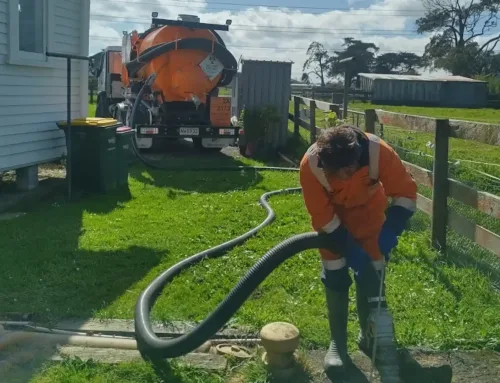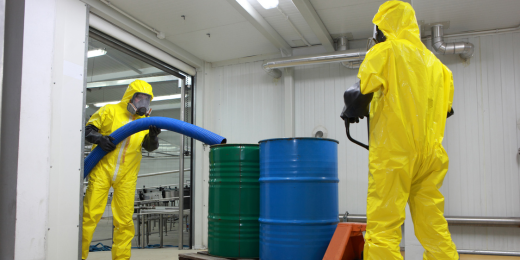Some Of Reclaim Waste
Some Of Reclaim Waste
Blog Article
Getting The Reclaim Waste To Work
Table of ContentsThe Facts About Reclaim Waste RevealedThe Facts About Reclaim Waste RevealedThe 30-Second Trick For Reclaim WasteExcitement About Reclaim WasteFascination About Reclaim Waste
Discover the kinds, events, and types of liquid waste. Residential sewer waste describes the waste and products from a property septic system. This kind of waste is created by people in houses, colleges, and other structures. This only includes septic systems that have a drain area. The appropriate management and disposal of residential sewer waste need liquid waste to be moved to a sewage therapy plant where the correct techniques and tools are applied to detoxify and dispose of waste.
Business waste typically includes prospective threats, such as combustible materials or a combination of liquid and strong waste items, and needs an advanced and comprehensive disposal procedure. The disposal of business waste generally involves the filtering of waste prior to transport to make certain safe and appropriate disposal. Hazardous waste is developed from byproducts and overflow of commercial procedures and manufacturing.
This kind of waste can not utilize the exact same sewer management transport or procedures as septic or commercial liquids. The hazardous waste monitoring process needs the examination and testing of liquid waste prior to it undergoes the disposal process (liquid waste disposal). Drainage waste is the fluid waste that originates from overflow and excess stormwater in extremely inhabited areas or cities
Overflow waste can trigger contamination and flooding if not handled properly. Ensuring correct waste administration can stop disasters and reduce ecological damage.
Reclaim Waste Can Be Fun For Anyone
Call PROS Services today to learn more about our waste monitoring and disposal services and the appropriate ways to look after the liquid waste you generate.
(https://businesslistingplus.com/profile/reclaimwaste1/)Do you know what occurs to your water when you draw the plug, purge the commode or drain pipes the washing maker? No? Well, it deserves recognizing. This so-called 'wastewater' is not just a vital source however, after therapy, will be launched to our land, rivers or the ocean. Used water from bathrooms, showers, baths, kitchen sinks, washings and commercial procedures is called wastewater.

water used to cool down equipment or tidy plant and tools). Stormwater, a kind of wastewater, is drainage that moves from agricultural and metropolitan locations such as roofings, parks, yards, roadways, courses and seamless gutters into stormwater drains, after rainfall. Stormwater streams unattended straight to regional creeks or rivers, eventually reaching the ocean.
Unknown Facts About Reclaim Waste
In Queensland, the majority of wastewater is dealt with at sewer therapy plants. Wastewater is transported from residential or commercial websites through a system of sewers and pump stations, recognized as sewage reticulation, to a sewage treatment plant.
The Department of Natural Resources advises local federal governments concerning handling, operating and preserving sewerage systems and treatment plants. In unsewered locations, city governments might need householders to install individual or home sewer therapy systems to treat domestic wastewater from toilets, kitchen areas, restrooms and washings. The Division of Natural Resources authorizes the use of home systems when they are shown to be effective.
Most stormwater obtains no therapy. In some brand-new class, therapy of some stormwater to eliminate clutter, sand and crushed rock has actually started making use of gross pollutant catches. Wastewater treatment takes place in four phases: Gets rid of solid issue. Larger solids, such as plastics and various other objects mistakenly discharged to sewers, are gotten rid of when wastewater is passed with screens.
Wastewater then moves into huge storage tanks where solids settle and are gotten rid of as sludge. Grease and residue are skimmed from the surface area. Utilizes tiny living microorganisms called micro-organisms to break down and remove remaining liquified wastes and fine particles. Micro-organisms and wastes are included in the sludge. Gets rid of nitrogen and phosphorus nutrients that might create algal blossoms in our waterways and endanger marine life.
Not known Details About Reclaim Waste
Nutrient elimination is not offered at all sewer treatment plants because it requires expensive specialised tools. Clear fluid effluent created after treatment may still include disease-causing micro-organisms - industrial wastewater treatment.

The majority of wastewater moves right into the sewerage system. Under the Act, regional governments carry out authorizations and licences for ecologically relevant tasks (Periods) entailing wastewater launches that could have a local influence.
The Best Strategy To Use For Reclaim Waste
Otherwise, samples are taken for research laboratory analysis. Commonly several tests are needed to develop the degrees of each of the various contaminants such as oils, hefty steels and chemicals in water. Monitoring supplies valid information regarding water top quality and can confirm that permit problems are being fulfilled. The info obtained via tracking gives the basis for making water quality choices.
Report this page